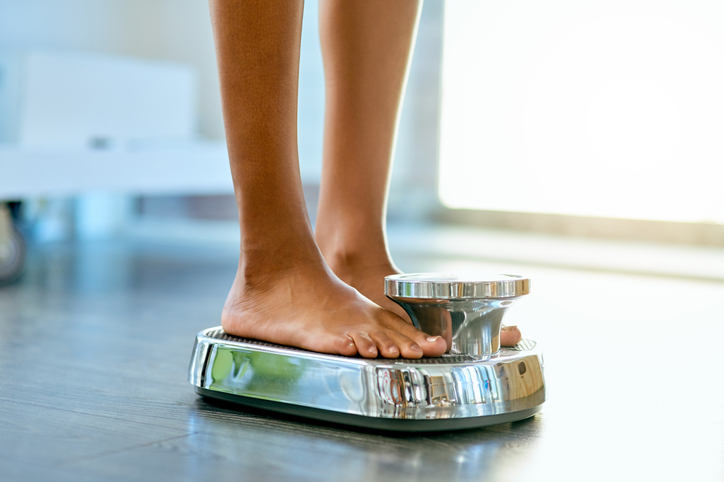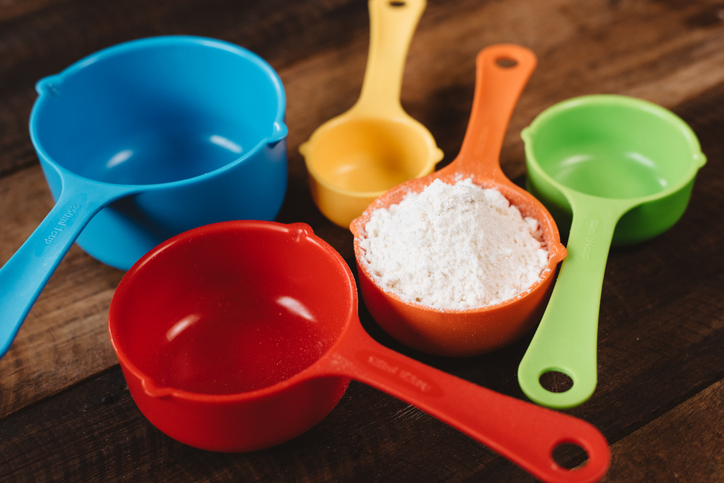How To Keep A Food Journal - Page 14
Share the post
Share this link via
Or copy link

Source: Goodboy Picture Company / Getty
Food journaling can be a useful tool for many circumstances. Those suffering from digestive issues but struggling to pinpoint what foods are causing the problems can learn a lot by keeping a detailed record of what they eat, including what they group that food with, what times they eat, and so on. Even though allergy tests do exist, they aren’t always accurate, and some do not check for certain rare or specific things.
Food journaling can also be a good tool for those trying to lose weight, who are finding it challenging to develop good habits. One may learn that certain foods trigger cravings or hunger responses, or other unwanted consequences.
All of that being said, a food journal is only as helpful as you are diligent and dedicated to it. Keeping a food journal seems easy at first. But those hoping to keep one for more than just a few days will quickly run into some hurdles and find they could use some help keeping up with it, as well as knowing how to keep one that provides useful insight. Here are tips for keeping a useful food journal.

Source: katleho Seisa / Getty
Using a food journal for weight loss
Love MadameNoire? Get more! Join the MadameNoire Newsletter
We care about your data. See our privacy policy.
If you are food journaling for the purposes of weight loss and wondering just how effective that is, research has found that keeping a food journal can yield double the results that dieting without food journaling does. It’s a good idea to meet regularly with a nutritionist while you are food journaling, so you can have an expert analyze your data.

Source: MixMedia / Getty
Food journaling for emotional reasons
If you struggle with binge eating and are keeping a food journal to learn your triggers, it is very important to approach this tool without any judgment. It is here to help you, rather than to make you feel shame. And it is not meant to encourage you to deprive yourself so that the journal looks “attractive.” Consult with a mental health professional if you are food journaling for this reason.

Source: Tom Werner / Getty
Set a menu, and just make adjustments
One of the easiest ways to make sure you record the correct food is to decide on that food, in advance. That allows you to create your journal at the beginning of the week. If you’ve already purchased those foods and stick to your menu plan, then the journal is accurate. Should you diverge from the plan a little, you can make edits, but that’s far less work than creating new and unique entries as you go. This is a good tool for those who enjoy meal prepping and like to get things done ahead of time. But it won’t work for everyone.

Source: valentinrussanov / Getty
Take photos
Writing down what you’ve eaten is helpful, but sometimes, it doesn’t give the whole picture – literally. You may eat something that wouldn’t typically cause you an upset stomach, or following a diet that shouldn’t be causing weight loss – but it is. Maybe it’s, say, oatmeal. If you look at the photo, you may realize that that particular oatmeal came with seeds mixed in, which may cause an upset stomach.

Source: filadendron / Getty
Use a verbal notes app
The actual act of writing things down can take a lot of time, and you can tire of it quickly. In fact, that’s a common reason people become lazy with food journals. So, instead, use a verbal app that just lets you speak into your phone, recording what you ate. This may even encourage you to become more specific, as speaking takes so much less energy than writing.

Source: ljubaphoto / Getty
Include exact quantities
It may seem silly to include how many tablespoons of sour cream or quarter-cups of milk you put into something. But the body can have specific tolerances or ceilings for some items. You may learn that when you exceed two cups of milk in a day, you get an upset stomach, but the days you had less than that, you felt just fine. As for weight loss, quantities make a difference too, as small adjustments add up to big results.

Source: Mohd Hafiez Mohd Razali / EyeEm / Getty
Buy measuring tools
Get a food scale. Get a set of measuring spoons with a tablespoon, half tablespoon, teaspoon, half teaspoon…you get the idea. Get a measuring cup. Get a set of small, rounded measuring cups that can easily dip into bags of flour and boxes of cereal. Do not try to guess quantities because very few individuals outside of professional chefs and nutritionists can do so accurately.

Source: Marco Vacca / Getty
Put a journal by your bed
Keeping a journal by your bed will help you stay on top of journaling, before and after the busy day gets the best of you. You can wake up, decide what you’ll have for breakfast, and write it down right away. When you get in bed at night, you can think about the day, and put down what you just had for dinner, and other foods you had in the middle of the day.

Source: Diego Cervo / EyeEm / Getty
Don’t lie
Lying to yourself or your nutritionist/doctor won’t help anybody. Just because you don’t feel great about the massive platter of nachos you had one night, doesn’t mean you shouldn’t write it down. In fact, being honest about that might provide valuable insight into digestive discomfort or weight issues. Look, this journal is here to help you. Don’t worry about looking perfect for it.

Source: Sisoje / Getty
Record emotions
Recording events and emotions surrounding food can be helpful, no matter why you’re keeping this journal. If you are struggling with binge eating, a food journal can help you determine your triggers. If you want to lose weight but notice you cheat on your diet too often, a journal can help you show what events tend to lead to cheating (dinner with friends? Drinks with friends?)

Source: Geber86 / Getty
Be patient
It can take weeks of keeping a food journal to actually understand what’s going on with your body. If you’re evaluating weight gain or emotional eating issues, you’ll need patience. Your weight may not respond to your diet for several weeks. An emotionally triggering event may only come up every so often. The more information you gather, the better a picture you get of your health and life.

Source: fotostorm / Getty
Do. Not. Wait
Food journaling will need to be a priority while you’re at it. After eating something, don’t do a single thing until you write it down. The moment you make an exception and take that phone call, answer that email or open that piece of mail before logging that yogurt into your journal, you’ll just forget it ever happened.

Source: Brothers91 / Getty
Don’t forget drinks!
That iced tea, morning coffee with milk and sugar, afternoon latte, orange juice at lunch, a small cup of soda with chips…it all adds up. Furthermore, liquids can do very powerful and sometimes unpleasant things to our digestive system. A beverage may be at the root of your digestive issues, so don’t leave these out of the journal.

Source: Grace Cary / Getty
Review
Your food journal won’t do you much good if you don’t take the time to review it. Sit down with it once a week and see what you wrote down that week. Study it like a book. Grab a highlighter or a pen and circle/underline/highlight patterns you notice or events that might be important. Keep a page blank at the end of each week to write down observations.

Source: ljubaphoto / Getty
Don’t have shame in it
If you eat around other people at all – which you likely do – then you’ll need to get comfortable admitting that you keep a food journal. It’s too easy to slip into a pattern of, “Oh I won’t write down this smoothie I’m having with a friend because food journaling is embarrassing.” Suddenly, half a dozen food items go missing from your journal that week.
Related Tags
Newsletter-

Meet Dominique Fils-Aimé, The Haitian-Canadian Star Redefining Jazz For A New Generation: ‘This is My Vision' [Exclusive]
-

Cooking With Purpose — How Brittney Williams Honors Her Caribbean Roots Through Food
-

Bucket Baddies With Big Energy — The 30 Hottest NBA Players In The Game Right Now
-

8 Famous Lesbian Women Who Were Married To Men



